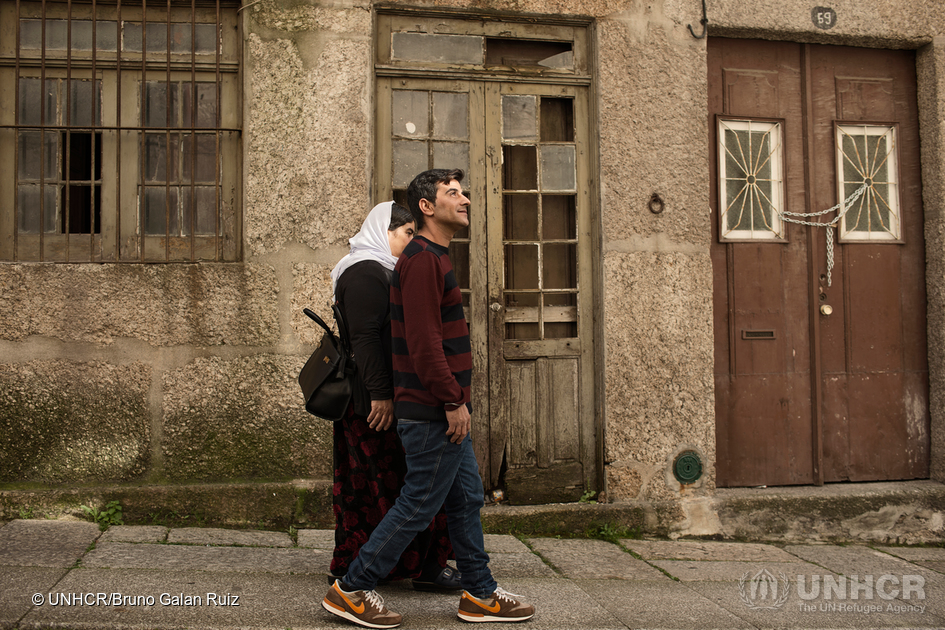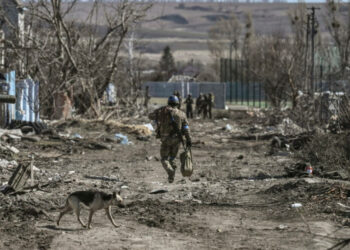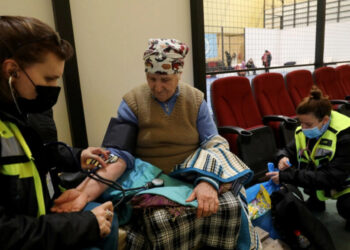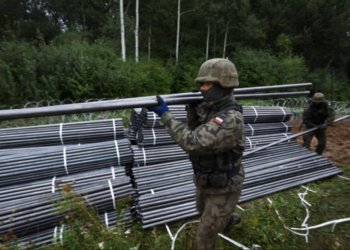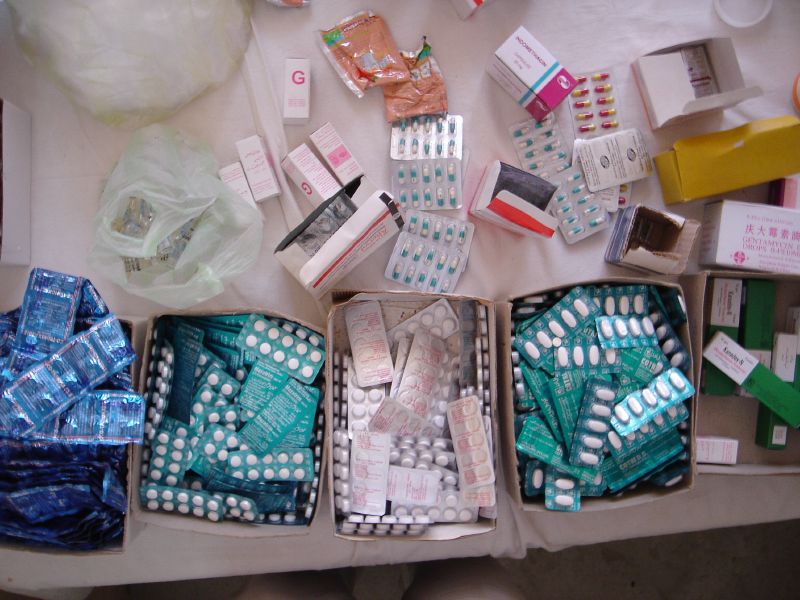LISBON, Portugal – While some European countries have shunned plans to settle refugees from Africa and the Middle East, the Portuguese government has been open to receiving refugees, agreeing to take in up to 10,000 people.
But the country has received just over 1,600 refugees from Greece and Italy in total according to the European Commission — less than its legal requirement of 2,951. And around 42 percent of refugees relocated to Portugal have moved elsewhere, according to country’s Foreigners and Border Service (SEF).
For 29-year old football player Mahmoud Zamzon, from Syria, Portugal was never a consideration; he had his mind set on Berlin. Under the E.U. relocation plan though, Mr. Zamson, a father of two, was forced to move there in January of last year, and was startled to find himself housed in a remote town in northern Portugal.
The move was a shock for Mr. Zamson. “I had never lived outside a city before,” he explained in a video call from Berlin.
Just a few days after being settled in Portugal, Mr. Zamson bought a bus ticket and set off to Berlin, where he is living in an apartment inside a refugee camp. Mr. Zamson said he was convinced by some of his friends and family members to move there, and he hasn’t looked back. He is now completing an internship at SC Klein Mutz Manner club and says he is happy with the €1,200 stipend he receives every month as he awaits long-term residency.
“I asked to move Lisbon, but they [the Portuguese government] wouldn’t let me, they said I had to stay where I was for two years,” he told The Globe Post, adding: “The monthly allowment the government offered was not enough.”
Portugal has taken a more positive stance toward refugees than other countries like Slovakia and Hungary, which recently made an appeal against the E.U. quota system. Portugal offers each refugee a monthly allowance of around €150 and housing for 18 months. So why don’t refugees want to stay there?
“We are not carrying out a marketing campaign to attract refugees and we don’t want to force them to stay here,” Rui Marques, President of the Refugee Support Platform (PAR), told The Globe Post. “Portugal is not receiving refugees because it needs them, but out of solidarity.”
But, as Mr. Marques points out, the Greek and Italian governments decide where refugees are relocated, and that it usually depends on where they have family members. “The evaluation should not be on how long refugees stay, but that they are treated with dignity, with respect,” he said.
For 32-year-old Iraqi tailor Mustafa Abdulsattar, who has been in Portugal since March 2016, the main challenge is finally getting permanent residency and finding a stable job. He works as a laundry cleaner in a hotel just outside Lisbon, but his contract ends in December.
“I like it here, but what am I going to do with my future? My job pays a salary of €520 per month and I pay €225 for my room. I am afraid for my future. My Portuguese isn’t so good. Even Portuguese people are going abroad to find work,” Mr. Abdulsattar told The Globe Post.
He added: “Portugal can’t help refugees because there are no jobs, and we want a quality future for us and our families.”
Mr. Marques pointed out that refugees experience the same troubles Portuguese citizens experience with finding jobs and good salaries, so it is natural some refugees would want to go to countries with better opportunities. PAR works with a number of institutions to ensure that refugees are supported for two years with help for housing, learning the Portuguese language, and integrating into the health and education system.
“There has been a consensus over immigration in Portugal in the last two decades, under both center-right and center-left governments,” Mr. Marques said. “And we hope it will stay that way in future. While we have seen a growth of the far right parties in Europe, that hasn’t been the case in Portugal, and there is no far-right party with parliamentary representation here.”
According to the Migrant Integration Policy Index, Portugal ranks second in terms of integrating immigrants, despite the crisis and financial austerity measures, maintaining its investment in integration and working to boost its reach and effectiveness.
Portugal has also seen a wave of solidarity and integration efforts from Portuguese citizens. At a former butcher’s shop in Lisbon’s Arroios neighborhood, a restaurant is now run by refugees who cook and serve Middle Eastern food.
“Mezze,” set up by the association Pão a Pão (Bread to Bread, an association to help refugees), was born out of a fundraising campaign set up by former journalist Francisca Gorjao Henriques.
“The idea was to design a business that would increase employability of refugees, especially women. Since women didn’t have proven experience in cooking, we professionalized that experience through a partnership with Tourism of Portugal, and the Lisbon Hotel Management School,” Ms. Gorjao Henriques told The Globe Post.
Mezze will soon be offering cooking workshops and debates to promote a cultural exchange between refugees and local citizens.
“I like it here [at Mezze], I like to cook here and it’s an income,” said Fatima Ghanam, from Syria, as she puts a Mashouwi dish in the oven, taking care not to burn her fingers. Ms. Ghanam found out about the project through her Portuguese teacher, and has been working at Mezze for around 3 months.
“I like it here [in Portugal] because it is a beautiful country and people are nice, they aren’t racist and they don’t mind me wearing a hijab. But I am not fulfilled because my son is in Turkey.” Ms. Ghanam told The Globe Post.
“My son has residency there so the only way he can come here is through the Portuguese government. I hope the restaurant will have great success, and on a personal level in future I hope to be surrounded by my family.”


